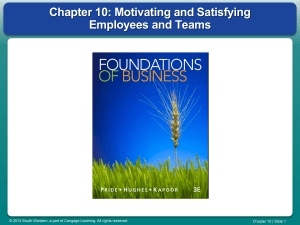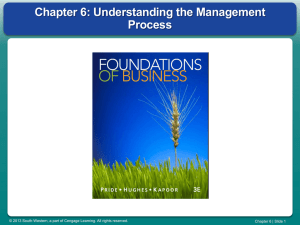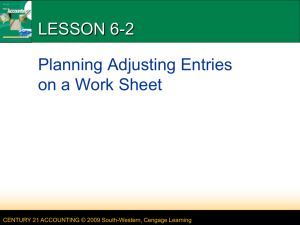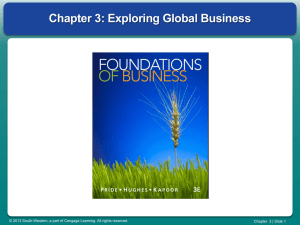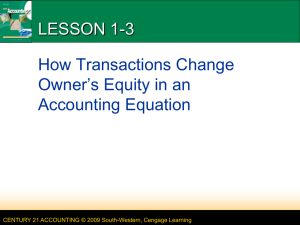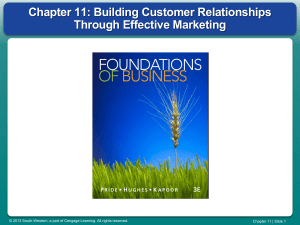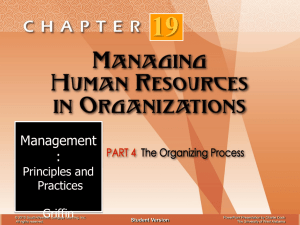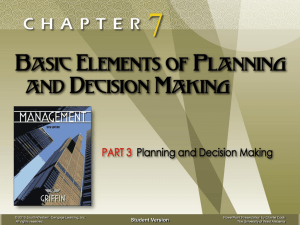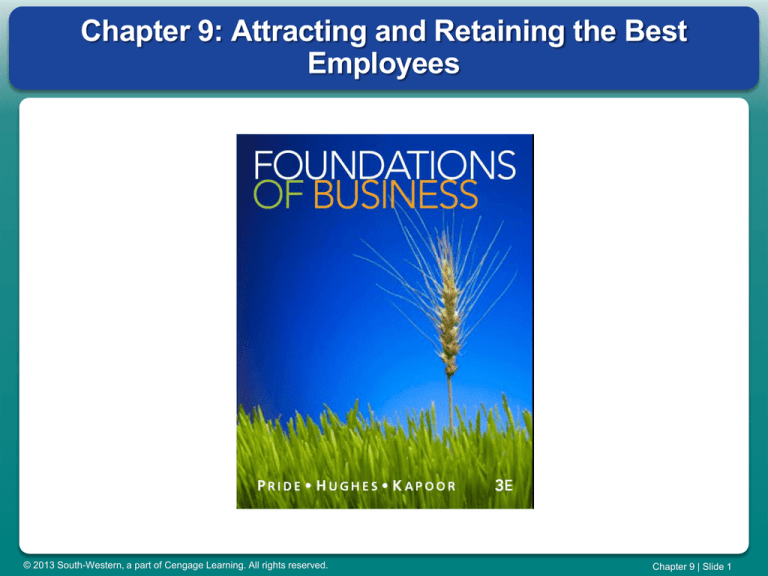
Chapter 9: Attracting and Retaining the Best
Employees
© 2013 South-Western, a part of Cengage Learning. All rights reserved.
Chapter 9 | Slide 1
Learning Objectives
1.
2.
3.
4.
5.
6.
7.
8.
9.
Describe the major components of human resources management.
Identify the steps in human resources planning.
Describe cultural diversity and understand some of the challenges
and opportunities associated with it.
Explain the objectives and uses of job analysis.
Describe the processes of recruiting, employee selection, and
orientation.
Discuss the primary elements of employee compensation and
benefits.
Explain the purposes and techniques of employee training and
development.
Discuss performance appraisal techniques and performance
feedback.
Outline the major legislation affecting human resources
management.
© 2013 South-Western, a part of Cengage Learning. All rights reserved.
Chapter 9 | Slide 2
Human Resources Management: An Overview
HRM Activities
Responsibility for HRM
© 2013 South-Western, a part of Cengage Learning. All rights reserved.
Chapter 9 | Slide 3
Human Resources Planning
Forecasting Human Resources Demand
Forecasting Human Resources Supply
Matching Supply with Demand]
The Importance of Cultural Diversity
© 2013 South-Western, a part of Cengage Learning. All rights reserved.
Chapter 9 | Slide 4
Job Analysis
Job analysis
Job description
Job specification
© 2013 South-Western, a part of Cengage Learning. All rights reserved.
Chapter 9 | Slide 5
Recruiting, Selection, and Orientation
Recruiting
1. External Recruiting
2. Internal Recruiting
Selection
1. Employment Applications
2. Employment Tests
3. Interviews
4. References
5. Assessment Centers
Orientation
© 2013 South-Western, a part of Cengage Learning. All rights reserved.
Chapter 9 | Slide 6
Compensation and Benefits
Compensation Decisions
1. Wage Level
2. Wage Structure
3. Individual Wages
Comparable Worth
Types of Compensation
1. Hourly Wage
2. Weekly or Monthly Salary
3. Commissions
4. Incentive Payments
5. Lump-Sum Salary Increases
6. Profit-Sharing
Employee Benefits
1. Types of Benefits
2. Flexible Benefit Plans
© 2013 South-Western, a part of Cengage Learning. All rights reserved.
Chapter 9 | Slide 7
Training and Development
Analysis of Training Needs
Training and Development Methods
Evaluation of Training and Development
© 2013 South-Western, a part of Cengage Learning. All rights reserved.
Chapter 9 | Slide 8
Performance Appraisal
Common Evaluation Techniques
1. Objective Methods
2. Judgmental Methods
3. Avoiding Appraisal Errors
Performance Feedback
© 2013 South-Western, a part of Cengage Learning. All rights reserved.
Chapter 9 | Slide 9
The Legal Environment of HRM
National Labor Relations Act and LaborManagement Relations Act
Fair Labor Standards Act
Equal Pay Act
Civil Rights Acts
Age Discrimination in Employment Act
Occupational Safety and Health Act
Employee Retirement Income Security Act
Affirmative Action
Americans with Disabilities Act
© 2013 South-Western, a part of Cengage Learning. All rights reserved.
Chapter 9 | Slide 10

